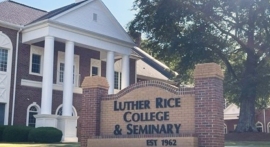
The U.S. 10th Circuit Court of Appeals issued a stay on its earlier decision from last month, which made it compulsory for the Little Sisters of the Poor to comply with the Affordable Care Act's contraception mandate.
This is a temporary reprieve for the religious group until their petition is heard in the US Supreme Court.
Little Sisters of the Poor runs 30 nursing homes across U.S. The court's decision on July 14 required the religious group to file for exemption from providing contraceptives to their employees, so that a third-party could step in. Failure to adhere to these guidelines would have cost the organization huge fines of millions of dollars.
The religious group considers this requirement a violation of its faith, as the system still aims to distribute the abortive products to the employees, which is against its deeply held beliefs.
About 20 states, a Jewish group, and many evangelical and secular organizations are supporting the Little Sisters of the Poor, asking the court to defend religious freedom.
"We are deeply grateful for the outpouring of support we have received from such a wide range of people and groups. We simply ask the government to allow us to continue our ministry of caring for the elderly poor as we have for over 175 years without being forced to violate our faith or pay government fines," said a statement issued by Sister Loraine Marie Maguire, Mother Provincial for the Little Sisters of the Poor.
The supporting organizations include Association of American Physicians, Orthodox Jewish Rabbis, Dominican Sisters of Mary, Council for Christian Colleges & Universities, among a host of other organizations.
"This strong show of support for the Little Sisters demonstrates just how important it is that the Supreme Court address the impact of the HHS (Health and Human Services) mandate, particularly on religious groups," Mark Rienzi, senior counsel at Becket Fund for Religious Liberty, said in a statement. "It is especially significant that 20 state governments are supporting the Little Sisters at the Supreme Court."
"The Sisters consider it immoral to help the government distribute these drugs. But instead of simply exempting them, the government insists that it can take over their ministry's employee healthcare to distribute these drugs to their employees, while dismissing the Sisters' moral objections as irrelevant. In America, judges and government bureaucrats have no authority to tell the Little Sisters what is moral or immoral," said Rienzi.
"As Little Sisters of the Poor we dedicate our lives to serving the neediest in society, with love and dignity," Sister Loraine had said in a statement after the Appeals court ruled against them. "We perform this loving ministry because of our faith and simply cannot choose between our care for the elderly poor and our faith, and we shouldn't have to."
The Jewish rabbis submitted an amicus brief to the Appeals Court in support of the NGO, which states:
"[Religious Freedom Restoration Act] neither requires nor allows courts to second-guess religious adherents' sincerely held religious beliefs... In evaluating and ultimately rejecting the petitioners' claim that complying with the Health and Human Services Accommodation would substantially burden their religious exercise, the Tenth Circuit deviated from this precedent and significantly narrowed RFRA's protection."
Objecting to the majority ruling, Judge Bobby Baldock of the 10th Circuit said that the mandate does not protect the religious groups from being compelled to go against their faith. Instead he noted, it "forces them to either (1) violate their sincere religious beliefs by performing an action that will cause their beneficiaries to receive objected-to coverage, or (2) violate the law. ... This is a Hobson's choice and thus a substantial burden on their religious exercise."
















